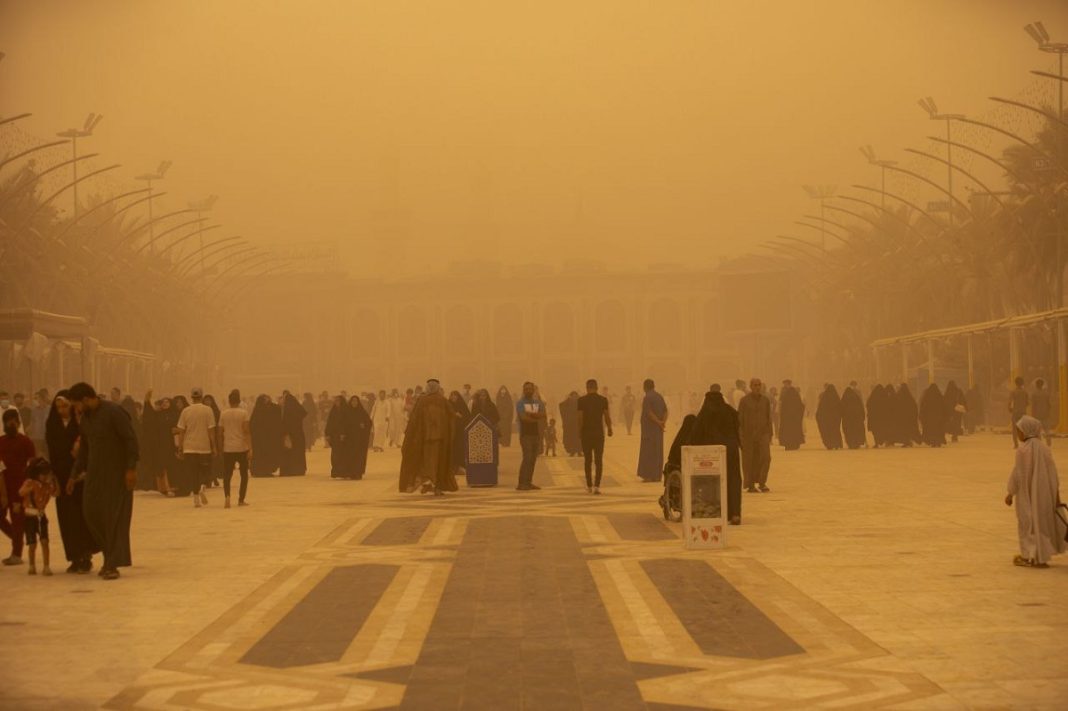Residents of six of Iraq’s 18 provinces, including Baghdad and the vast western region of Al-Anbar, awoke once again to a thick cloud of dust blanketing the sky.
Authorities in Al-Anbar and Kirkuk provinces, north of the capital, urged people to stay indoors, according to INA news agency.
Hospitals in Al-Anbar province had received more than 700 patients with breathing difficulties, said Anas Qais, a health official cited by INA.
The central province of Salaheddin reported more than 300 cases, while the central province of Diwaniya and the province of Najaf, south of Baghdad, each recorded about 100 cases, the news agency added.
Iraq is particularly vulnerable to climate change, having already witnessed record low rainfall and high temperatures in the past few years. Experts have stated these factors threaten to bring social and economic disaster in the war-scarred country.
In November, the World Bank warned Iraq could suffer a 20-percent drop in water resources by 2050 due to climate change. In early April, a government official warned Iraq could face “272 days of dust” a year in coming decades.
The environment ministry announced the weather phenomenon could be addressed by “increasing vegetation cover and creating forests that act as windbreaks”.
